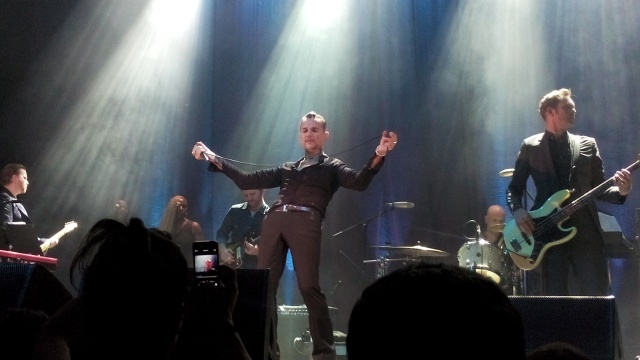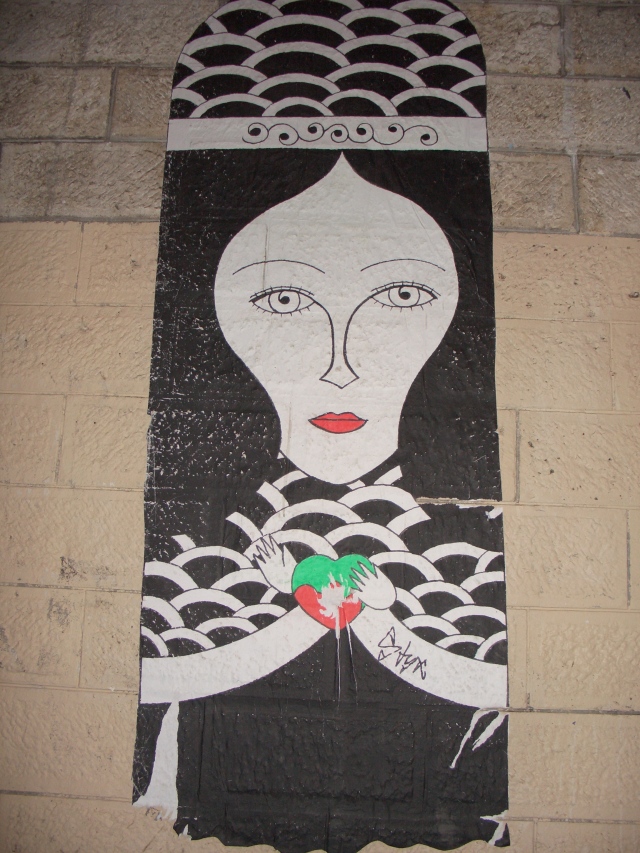Paris is hurting again.
A sharp breeze is blowing; it has an edge to it. The sky is clear blue, and the trees full of pink magnolia and trailing wisteria, but the Champs-Elysées is blooming too, following in the flower-strewn wake of Bataclan, La Belle Equipe, Le Petit Cambodge and the Charlie Hebdo offices as outraged, pained, numbed people come to light more candles and lay more bouquets. On its online edition, Le Monde has a picture of a pretty girl and a rose, as if there is some strange need to make this moment less ugly. Links with Sunday’s first round of the presidential election are unavoidable.
I couldn’t bring myself to go there today. In the Marais, a favourite café has finally replaced its folding glass doors after the shopfront was destroyed months ago by joyriders. Normalcy returned in some small corner.
Time collapses into itself. Friday night is a twilight zone.
All is quiet as I scroll through results of a cursory Google search. Last November the Guardian ran an online questionnaire to find out how Paris had changed in the year since the 2015 attacks that killed scores. “How do you feel France has changed?” “How has your daily life changed?” The quick answer now seems to be a sour disillusionment with the Parti Socialiste government, effectively forcing François Hollande into hiding in order to boost PS candidate Benoît Hamon through disassociation. It’s not working – the April 21 survey in L’Express has him in fifth place on seven per cent. Centrist independent Emmanuel Macron is leading on 24 per cent. At the same time, Libération’s front page is screaming of second- and fourth-runners Marine Le Pen and Jean-Luc Mélenchon, “Anyone but them.” Perhaps the disillusionment is total. (Sunday will show how deep this rot has dug in its weedy roots.)
Bag searches are a necessary tedium. The flow of life has developed a weird staccato of suspect packages, screenings, scans, sirens and station closures. Some of these shutdowns are planned works, progress not interruptions. Move it along, move it along.
It’s economics, too. Not just violence.
And yet, what change, really? The daily grind continues. Métro, boulot, dodo. It’s surreal. A loud bang rings out over the wall behind the garden behind my apartment and I search my memory for evidence that I understand what a gunshot sounds like. I don’t. A person sings to themselves on the RER and I tune in to find out a hidden meaning. There is no sinister message. I wonder if this insidious paranoia infuses the lives of others.
Tonight, my downstairs neighbours are taking advantage of balmy night to start up a loud conversation on their terrace. The hubbub is comforting.
Last night, travelling home, I listened to the list of stations where my line one Métro would not be stopping – Champs-Elysées-Clemenceau, Franklin Roosevelt, George V, Charles de Gaulle Etoile – and wondered what demonstration or protest could be happening late on a Thursday. I put the other possibility out of my mind. I forced it out. Barred it with the brutality of denial. I had that luxury for the short span of a subway trip.
My skin is rubbed raw. It’s the dry air of this strange climate.
I struggle to call Paris my city, but it is my bubble, my gleaming, illusory, fragile bubble. If I push my nose to it, it’s sticky and distorted. But it floats and shines and reflects rainbows that have nothing to do with reality.







